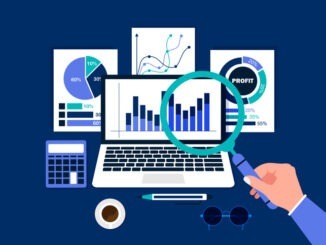
From implementing personalisation to remote selling and account-based selling, here are the game-changing trends that are shaping the future of B2B sales
CREDIT: This is an edited version of an article that originally appeared on The Center For Sales Strategy
As we continue to navigate 2023, it becomes crucial for B2B companies to stay ahead of the curve by embracing emerging trends that can enhance their sales strategies and drive sustainable growth.
Here are five key trends that are revolutionising the B2B sales landscape, providing valuable insights and practical tips to help resellers navigate and thrive in this competitive environment.
Personalisation
Personalisation has been a buzzword in B2C marketing for years, but it’s now becoming a top priority for B2B sales teams. Buyers expect a personalised experience that meets their unique needs and challenges.
Sales teams are using data analytics and machine learning to gather insights on buyer behaviour and preferences, allowing them to create tailored sales pitches and experiences that resonate with buyers.
Remote Selling
The COVID-19 pandemic accelerated the trend towards remote selling. Today after more than three years, sales teams are using video conferencing, virtual presentations, and other digital tools to connect with buyers and close deals from a distance. As remote selling becomes the norm, sales teams must adapt their strategies to succeed in this virtual landscape.
Account-Based Selling
Account-based selling (ABS) is a targeted approach to B2B sales that focuses on building relationships with key accounts rather than casting a wide net.
Sales teams are using data analytics and customer insights to identify high-value accounts and create personalised sales strategies that address their specific needs and pain points. ABS can result in higher close rates and larger deals, but it requires a more strategic approach to sales.
Customer Success
Customer success is a growing trend in B2B sales as businesses recognise the importance of retaining and growing existing customers. Sales teams are shifting their focus from one-time sales to building long-term relationships with customers. This means providing exceptional customer service, anticipating, and addressing customer needs, and ensuring customer satisfaction throughout the entire sales cycle.
Sales Technology
Sales technology is advancing at a rapid pace, and sales teams are using these tools to automate and streamline their sales processes. From CRM systems to sales automation software, technology is helping sales teams work more efficiently and effectively. Artificial intelligence and machine learning are also being used to analyse data and provide insights that can inform sales strategies and drive revenue growth.
Conclusion
B2B sales teams must stay ahead of the curve by embracing emerging trends and adapting their strategies to the changing sales landscape.
Personalisation, remote selling, account-based selling, customer success, and sales technology are all trends that are shaping the future of B2B sales. By incorporating these trends into their sales strategies, businesses can drive growth and stay competitive in an ever-changing market.


Be the first to comment